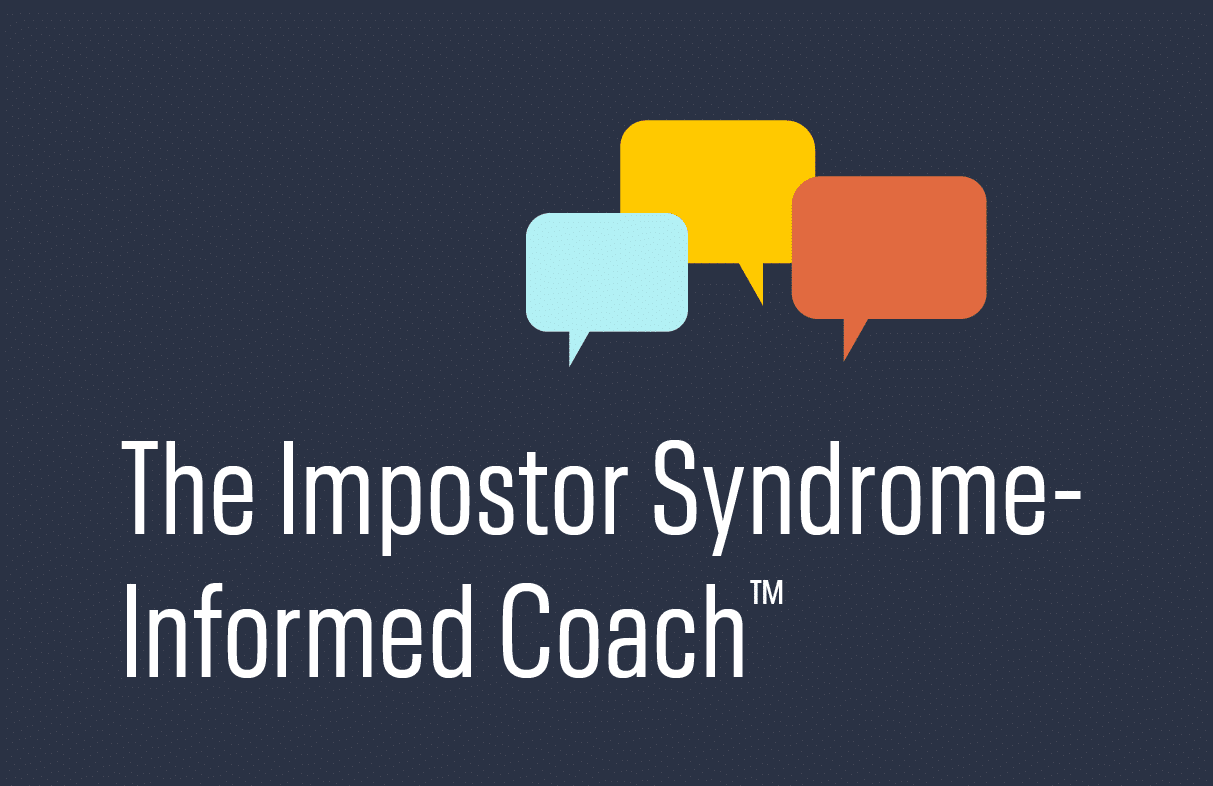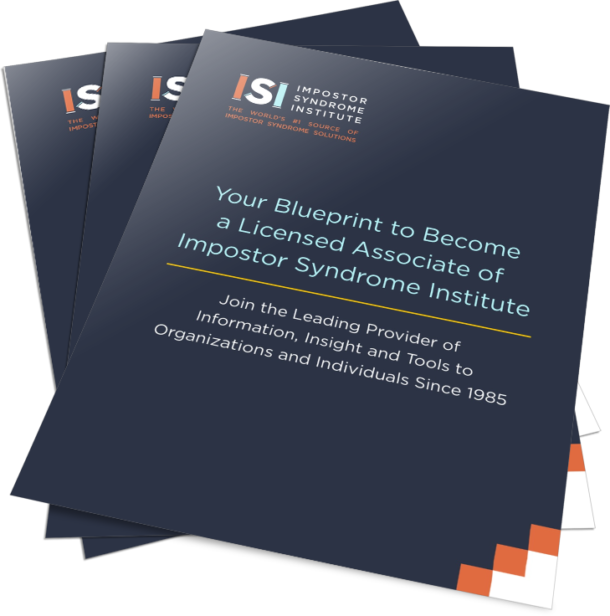
What Even Big Name Coaching Sites Get Wrong About Impostor Syndrome And How It’s Hurting Your Clients
Most coaches don’t realize this key distinction about impostor syndrome
The majority of coaches are familiar with what are known as cognitive distortions.
It’s a fancy way of describing when your client engages in things like all-or-nothing thinking, personalizing (it must be me), explaining away positives (externalizing), and “shoulding.”
All things people with impostor syndrome happen to do.
Well, four decades ago I made the key connection between impostor syndrome and inaccurate thinking, perceptions, or beliefs specifically about competence.
“Competence distortions” refer to the idealistic and unsustainable ways we judge our intellect and performance. Failure to consistently attain our unrealistic notions of competence confirms we are “impostors.”

Competence distortions are common to everyone with impostor syndrome.
Competence distortions are also the core source of impostor syndrome.
Put another way: If all the other potential sources — societal, familial, situational, occupational, and organizational — vanished tomorrow, but our distorted thinking about competence remained, so would impostor syndrome.
Your client’s belief that to be competent they should always know the answer, not need help, do everything perfectly, or never make a mistake leads to:
- difficulty recognizing and internalizing accomplishments
- an unhealthy response to failure, mistakes, setbacks, and constructive criticism
- falsely equating competence and confidence, e.g. “If were really competent, I’d always be confident”
As I discovered, how you define and experience competence, success, and failure has everything to do with how confident and competent you feel.
Adjusting how you think about competence, failure, and fear is the fastest path to overcoming impostor syndrome, bar none. And it won’t happen unless you do. Period.
The empirical link between impostor phenomenon and perfectionism is well known.
However, through my educational work with hundreds of thousands of people around the world, I found that while perfectionism is true for some, it does not ring true for everyone.
In addition to the Perfectionist, I observed four additional orientations to competence: The Expert, Natural Genius, Soloist, and Superhuman.
These differing orientations to competence have become popularly known as “the five types of impostor syndrome.”
The common denominator for all five orientations is that failure to consistently attain the idealized notion of competence confirms their impostorism.
Some people identify strongly with one type and others associate with more than one.
It is essential that coaches understand these five types.
But there’s one BIG problem: Most People Get Them Wrong!
The 5 Types of Impostor Syndrome and Ways Most Coaches Get Them Completely Wrong
The “five types of impostor syndrome” have been cited in thousands of articles, blog and social media posts, YouTube videos, and podcasts and in dozens of books.
Even those that cite me as the source, often get them wrong. The most frequent misrepresentation of my work is characterizing the 5 Types as representing different “personalities,” “personas,” or “archetypes.”
This may explain the widespread tendency for coaches and even some major coaching and mental health websites to over-psychologize the types.
They do this by ascribing motives, insecurities, personal histories, or characteristics where none was intended — or known.
- The Superhuman has been portrayed as a workaholic who is overcompensating for perceived inadequacies, in need of constant validation and/or to prove themselves superior.
- The Perfectionist has been characterized as having low self-esteem, fear of losing control, or experiencing childhood trauma.
- The Natural Genius is often described as someone who is an actual “genius” or who since childhood has excelled without effort and is threatened by feedback.
- The Expert is presented as a known expert in their field, having multiple degrees, constantly comparing themselves to others, or having a fear of inadequacy.
- The Soloist has been falsely described as either resenting other people, having difficulty forming meaningful relationships, or both.
There’s the obvious problem that these and similar characterizations border on a diagnosis (which coaches are not supposed to do.)
But they’re also based on speculation and not actual evidence.
This kind of “armchair psychology” is usually accompanied by uninformed advice on how to “fix” the problem.
It’s like trying to unlock a door with a key that almost fits but isn’t quite right. You can jiggle it and try to force it, but the door won’t open. Using tools that aren’t designed to “open the door” leave your client trapped instead of moving forward.
As importantly, these characterizations fail to grasp the core meaning of the five types.
My work describes five ways people who self-identify with impostor syndrome misinterpret what it means to be competent. Nothing more, nothing less.
You can hear me personally describe the 5 Types of Impostor Syndrome in my own words here:
In coaching as in life, an accurate understanding of the problem is always the first step in implementing effective solutions.
If you want to effectively help clients with impostor syndrome you need both an accurate and an in-depth understanding of these competence distortions.
It’s the only way to help your clients to first become aware of and then replace this kind of “impostor thinking” with what we refer to as a Humble Realist™.
We cover this and much more in The Impostor Syndrome-Informed Coach™ program:
Along with 25 ICF CCE hours you gain the knowledge, confidence, and credibility to serve your current clients and grow your practice by attracting new ones.

VALERIE YOUNG is co-founder of Impostor Syndrome Institute. An internationally recognized thought leader for four decades, she has delivered her Rethinking Impostor Syndrome™ program to over half a million people at such diverse organizations as Pfizer, Google, NASA, Harvard, Stanford, and Oxford. Valerie earned her doctoral degree from the University of Massachusetts, Amherst, where she was helped found the Social Justice Education program, a forerunner to today’s DE&I training. Although her early research focused on professional women—over half of whom were women of color—much of the original findings have proven applicable to anyone with impostor feelings. Her book has been reprinted in five languages.
Click here now to learn how you can bring Valerie in to speak at your organization.


